This post was written by Elissa Eggers ’19
“In a gentle way, you can shake the world.”
 I first encountered this quote by Gandhi on Pinterest last fall, when I was beginning the grad school application process. I found it to be a comforting reminder that although my aspirations were large (telling people you want to save the planet can result in a lot of blank stares), I could find a way to make an impact on my own terms. While, I’ve never been a particularly loud or forceful person, I’ve never lacked conviction. Ultimately, I knew that because I would probably never be the person leading a protest or going door-to-door, I needed to find the avenue that best allowed me to use my interests and abilities to bring about change. This is what drew me to The Sustainable Innovation MBA. I knew it would hone my current skill-sets, provide me with the tools needed to make an impact, and expose me to avenues for change I didn’t yet know existed. In this regard, the program has most certainly not disappointed.
I first encountered this quote by Gandhi on Pinterest last fall, when I was beginning the grad school application process. I found it to be a comforting reminder that although my aspirations were large (telling people you want to save the planet can result in a lot of blank stares), I could find a way to make an impact on my own terms. While, I’ve never been a particularly loud or forceful person, I’ve never lacked conviction. Ultimately, I knew that because I would probably never be the person leading a protest or going door-to-door, I needed to find the avenue that best allowed me to use my interests and abilities to bring about change. This is what drew me to The Sustainable Innovation MBA. I knew it would hone my current skill-sets, provide me with the tools needed to make an impact, and expose me to avenues for change I didn’t yet know existed. In this regard, the program has most certainly not disappointed.
All of our choices have an impact. The key is figuring out in what ways, whether big or small, you can make an impact that is authentic to you.
In the mere 3 months (could it really have only be 3 months?) I’ve been in the program, I’ve met an incredible collection of human beings and been exposed to a plethora of new ideas and viewpoints. The real trick though, I’m learning, is remembering to look up and maintain perspective while trying to take in all this new information coming at you. This program is, without question, fast moving and its relentless pace can cause you to become stuck in the weeds as you focus on checking off the ever-growing collection of deliverables on your to-do list. I’ll admit, this has been me for the past few weeks. I’ve fallen down the rabbit-hole of cost models, business plans, and organizational behavior. However, my drive home from Burlington for the holidays mixed with the magic of Pinterest in periodically resurrecting old, previously viewed pins, provided me with some much-needed perspective.
My background is in retail management and I came into this program to learn more about how the product life cycle (specifically related to clothing) can become more circular as well as how to shift consumer behavior. With Black Friday and the holiday shopping season soundly upon us, I can’t think of better time to reground in why I started along this journey in the first place. What we buy matters, and how we use it can matter even more. All of our choices have an impact. The key is figuring out in what ways, whether big or small, you can make an impact that is authentic to you.
So, my question for you this holiday season and beyond, is how will you shake the world?
Photo by Fancycrave on Unsplash

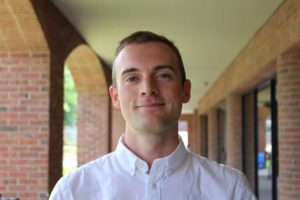 If ever there has been an MBA program designed with disruption and creative destruction in mind, it’s this one. This MBA isn’t a fast track to Wall Street, it’s a fast track to learning how to be a serial industry disruptor.
If ever there has been an MBA program designed with disruption and creative destruction in mind, it’s this one. This MBA isn’t a fast track to Wall Street, it’s a fast track to learning how to be a serial industry disruptor.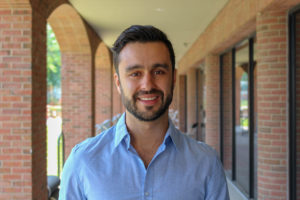 As a mechanical engineer working in the renewable energy and hydrogen fuel sector for six years, I started to notice that the development of these disruptive technologies will not reach full commercialization out of pure environmental enthusiasm. I understood that the creation of new business models based on sustainable practices that serve the vested interests of not just some, but all of the stakeholders, should be the objective to be pursued. It was then that I realized it was time to go back to school. I chose to attend an MBA program because I saw business as a tool to complement my engineering background. However, I specifically chose this program because it has an primary objective that I did not find in any other MBA program ― to make the world a better place.
As a mechanical engineer working in the renewable energy and hydrogen fuel sector for six years, I started to notice that the development of these disruptive technologies will not reach full commercialization out of pure environmental enthusiasm. I understood that the creation of new business models based on sustainable practices that serve the vested interests of not just some, but all of the stakeholders, should be the objective to be pursued. It was then that I realized it was time to go back to school. I chose to attend an MBA program because I saw business as a tool to complement my engineering background. However, I specifically chose this program because it has an primary objective that I did not find in any other MBA program ― to make the world a better place.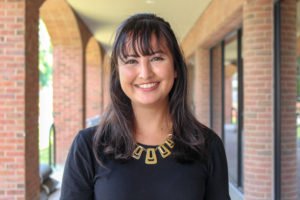 Why did you choose to attend The Sustainable Innovation MBA program?
Why did you choose to attend The Sustainable Innovation MBA program?


 I chose to join The Sustainable Innovation MBA program for a variety of reasons but one was the desire to find others who share the drive and fire to put their shoulders into the work that desperately needs to be done in the world. It is an odd thing to have the idea for that and then meet people who exceed your expectations. The excitement of being around actual humans with impressive and diverse backgrounds, rather than just concepts that such people exist, has been a pleasant condensation of reality.
I chose to join The Sustainable Innovation MBA program for a variety of reasons but one was the desire to find others who share the drive and fire to put their shoulders into the work that desperately needs to be done in the world. It is an odd thing to have the idea for that and then meet people who exceed your expectations. The excitement of being around actual humans with impressive and diverse backgrounds, rather than just concepts that such people exist, has been a pleasant condensation of reality.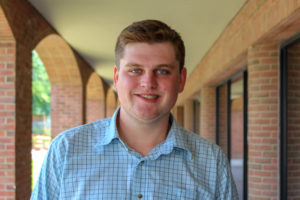 The truly daunting part of this experience is the slew of intangibles that you don’t prepare for: the people you might meet, the things you might say, or the unexpected things you might learn. I think I speak for much of my cohort when I say that the first steps into Kalkin 110 on Monday were some of the most exciting and terrifying steps of my life.
The truly daunting part of this experience is the slew of intangibles that you don’t prepare for: the people you might meet, the things you might say, or the unexpected things you might learn. I think I speak for much of my cohort when I say that the first steps into Kalkin 110 on Monday were some of the most exciting and terrifying steps of my life.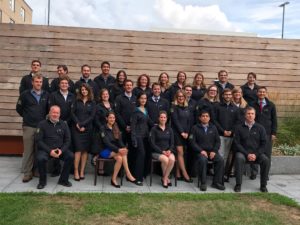 Last August, I packed up a van filled with my belonging and headed north, first on I-93 and then on I-89. I had come to Burlington to participate in a one-year, intensive MBA program. I had resisted graduate school and more formal education for a while, but something about this program spoke to me.
Last August, I packed up a van filled with my belonging and headed north, first on I-93 and then on I-89. I had come to Burlington to participate in a one-year, intensive MBA program. I had resisted graduate school and more formal education for a while, but something about this program spoke to me.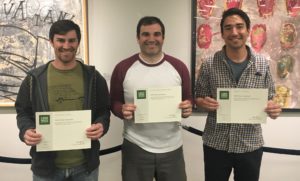 Today, the importance of LEED is underestimated, and the students believe that it will soon become the norm, becoming part of all building codes. The built environment accounts for more than a third of our total energy usage, as well as an immense amount of fresh water. And buildings take up a lot of space, disrupting natural drainage systems and increasing the urban heat island affect. Leadership in Energy and Environmental Design (LEED) is a certification system made to create greener buildings and more livable urban environments. It is estimated that people will spend up to 90% of their time indoors, so it makes sense to prioritize both healthier and more environmentally friendly buildings.
Today, the importance of LEED is underestimated, and the students believe that it will soon become the norm, becoming part of all building codes. The built environment accounts for more than a third of our total energy usage, as well as an immense amount of fresh water. And buildings take up a lot of space, disrupting natural drainage systems and increasing the urban heat island affect. Leadership in Energy and Environmental Design (LEED) is a certification system made to create greener buildings and more livable urban environments. It is estimated that people will spend up to 90% of their time indoors, so it makes sense to prioritize both healthier and more environmentally friendly buildings.